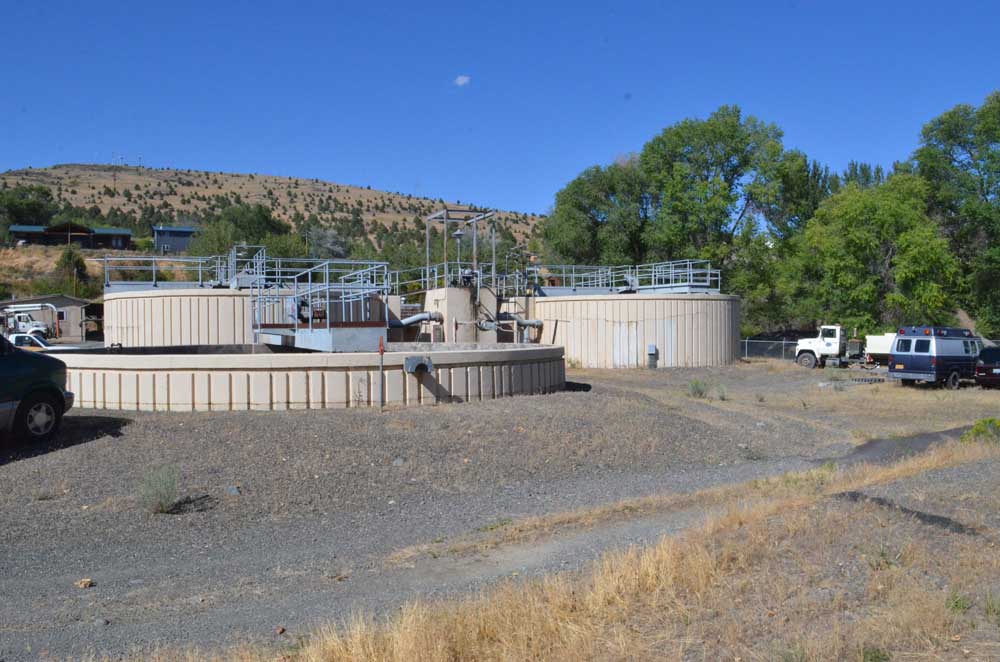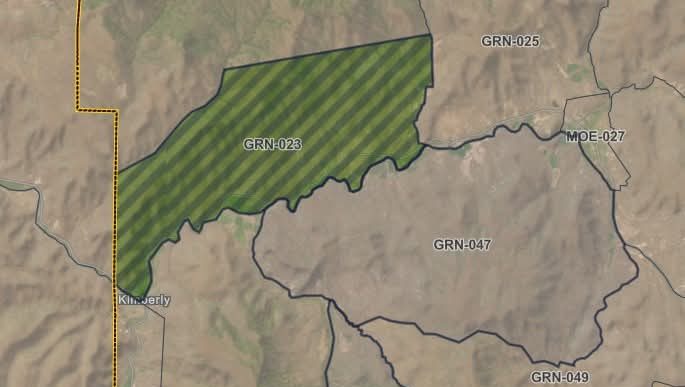Shelter adoptions slower in rural Union County
Published 2:30 am Friday, March 19, 2021

- Emily Insleman, a staff member at the Blue Mountain Humane Association, La Grande, feeds a treat to Riley on Tuesday, Feb. 9, 2021. Insleman had originally planned to serve as a volunteer at the organization, but due to COVID-19 restrictions the association had to limit volunteer positions. As a work around, the association hired her as a handler for more than the half-dozen dogs that call the shelter a temporary home.
Eastern Oregon stood apart from the national storylines of pet adoptions increasing in 2020 due to the pandemic.
Trending
The Blue Mountain Humane Association in La Grande in Union County adopted out 80 dogs in 2020, but Beverly Beach, president of the association’s board, said just one person returned a dog because of the pandemic.
“I could maybe contribute a portion of our adoptions to COVID, but not a large portion,” she said. “But I did see it in the industry.”
Beach cautioned, however, the Blue Mountain Humane Association’s previous record keeping was in disarray, so the organization does not have stats for its shelter from 2019. But in 2020, the BMHA took in 728 animals: 197 dogs, 507 cats (including 370 strays) and 24 other animals, including one rooster, one goat and 13 guinea pigs.
Trending
“I do know we did take one dog back because of COVID,” she said.
That return came recently from someone who adopted a puppy in 2020 when the pandemic hit, Beach said, anticipating they would want some companionship.
“That’s something I know when they saw an uptick in adoptions nationwide, and they were thinking if they would see a return of animals,” she said.
That scenario does not seem to have played out in Union County, she said, with the one exception. She said people who adopted animals in Union County in 2020 seemed to adopt them for common reasons.
“Mostly it was for a companion — a companion for the other dog, a companion for their kids,” Beach said. “No one really attributed (adopting) to COVID.”
Maybe the shelter will see an uptick, she said, but it hasn’t yet.
The Pendleton Animal Welfare Shelter in Umatilla County told a similar tale.
Melissa Nathan is the president of the Pioneer Humane Society in Pendleton, which oversees the shelter. She said the shelter saw a slight increase in overall animal adoptions and transfers in 2020 compared to 2019.
The shelter handled 1,251 adoptions and transfers in 2020 compared to 1,170 adoptions and transfers in 2019. But that bump was because of cat transfers. Dog adoptions and transfers, she said, actually went down in 2020.
The shelter had 273 dog adoptions and transfers in 2020, but it handled 328 dog adoptions and transfers in 2019. Cats were another matter.
The Pendleton organization handled 566 transfers and 371 adoptions of cats last year compared to 2019 when there were 377 transfers and 394 adoptions. Nathan said the increase in cat transfers was significant.
“We routinely transfer animals for adoption to partner organizations on a regular basis,” she said. “This is because the number of unwanted animals needing homes in Umatilla County that come to our shelter exceeds the number of local families seeking to adopt a pet.”
Locally, Nathan said, Umatilla County did not see the same kind of increase in adoption because of COVID-19 that shelters in U.S. cities saw.
“We did see, however, that we had a few more people from out of the area coming to our shelter to adopt,” she said. “People came from Washington, Idaho and Nevada seeking specific animals for adoption. Many of them indicated they were adopting now because they were working from home.”
Both shelters implemented COVID-19 measures and procedures starting in March, like the rest of the state.
Beach said the Blue Mountain Humane Associations’ restrictions include not allowing volunteers inside and adoption to appointments only.
“We’re just trying to keep our staff safe. We have shut the door tight and only have appointments and only one at a time,” Beach said. “That’s hurt because the shelter depends on volunteers for all sorts of things.”
Nathan said the Pendleton shelter had to close the shelter for a period and reduced the number of animals it had. PAWS also had about a 40% drop in adoptions during March, April and May. As the state lifted restrictions and the shelter established safety procedures, she said, it began taking in more animals and adoptions picked up again in June, July and August.
The shelter also had people who were out of work and waiting for unemployment payments and could no longer care for their pets.
“And they came to us to surrender their pets knowing we would make sure that we found them good homes. If they had gotten their unemployment payments they probably would not have surrendered their animals,” Nathan said.
The Pendleton shelter does not euthanize animals without a veterinarian’s recommendation due to health reasons. The Blue Mountain Humane Association is similar, reserving euthanasia for terminally ill animals or those considered dangerous to public safety. Nathan said operating a shelter this way can make a difference to people who have to surrender their pets.
“Knowing that their animal will be safe and cared for until we can find a home,” she said, “is a comfort to a pet owner when giving up their pet.”
Multimedia journalist Alex Wittwer contributed to this report.









